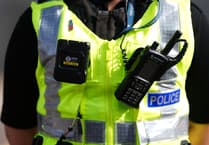Three major businesses with branches in the area have signed the UK Plastics Pact.
The UK Plastics Pact signed by Marks & Spencer, Lidl and Sainsbury’s is a trailblazing, collaborative initiative that will create a circular economy for plastics. It brings together businesses from across the entire value chain with UK governments and NGOs(non-profit organisations) to tackle the scourge of plastic waste.
The pact is needed to move away from a linear plastics economy where we take, make and dispose of plastic, and towards a circular system where we keep plastic in the economy and out of the natural environment.
A spokesman from Lidl said: “Alongside our own clear, ambitious targets for the reduction of plastic waste, we’re extremely proud to be one of the founding members of WRAP’s UK Plastic Pact, helping to transform the UK’s plastic system by bringing the whole plastic value chain together to capture the value of plastic, keeping it in the economy and out of the environment.
“At Lidl UK, we want to create a major shift in the way that packaging and plastics are used, to ensure that these resources are recovered and retained, eradicating plastic waste and moving us towards a truly circular system in the long term.
“We know our business and the wider industry needs to take big steps to achieve this; that’s why we have set clear and ambitious targets, not only to ensure that our packaging is completely recyclable, but that we are driving demand for this material by driving recycled content.
In addition, Sainsbury’s CEO, Mike Coupe said: “We’re pleased to sign the UK Plastics Pact that signals we all have a role to play in reducing the amount of plastics used in society. For our part, we accept our responsibilities and are working hard to reduce the use of plastic across our business. In fact, over 80% of our packaging can be recycled and we’re working hard to improve this further.”
Within the supermarket chain, brand packaging was already reduced by 35 per cent by 2005 and the business is aiming for 100 per cent of the own-brand plastic used to be reusable, recyclable or compostable by 2025.
From Marks & Spencer, Mike Barry, Director of Plan A, the eco and ethical programme, said: “No one business, council, recycler or government department can create a New Plastic Economy alone. Only a common approach to polymer use, recovery and reuse will deliver the change we need. At M&S, we will play our part and are committed to reducing our plastic use and making all our packaging widely recyclable.”
Through Plan A, the business is aiming to become a zero waste business by 2025 and to make all the packaging, not only recyclable but widely recycled by local authorities by 2022.
Nationally, the aim by 2025 is that The UK Plastics Pact will transform the UK plastic packaging sector by meeting four world-leading targets.
-By 2025 100 per cent of plastic packaging is to be reusable, recyclable or compostable
-By 2025 70 per cent of plastic packaging will be able to be effectively recycled or composted
-By 2025 businesses will take actions to eliminate problematic or unnecessary single-use packaging items through redesign, innovation or alternative delivery methods
-By 2025 there will be 30 per cent average recycled content across all plastic packaging





Comments
This article has no comments yet. Be the first to leave a comment.